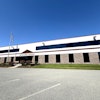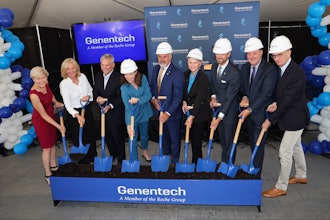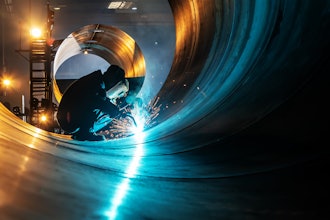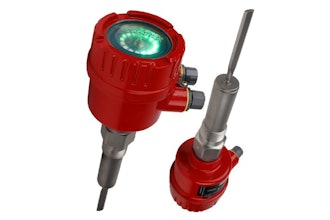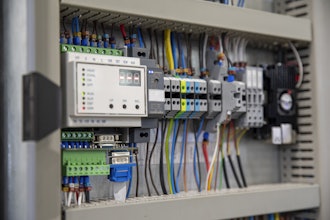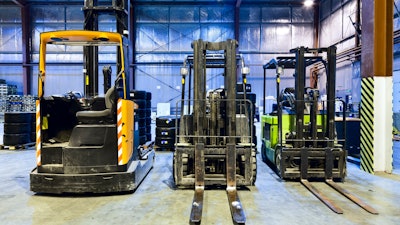
RALEIGH, NC — There are specific pros and cons of buying and leasing forklift machines. A host of factors are considered when making a decision between the two. However, according to the latest findings, most large companies lease forklifts when the usage is more than 1500 hours per year. Leasing offers budgeting stability and a steady influx of new equipment, appealing to companies with large-scale requirements.
"Forklifts are expensive pieces of machinery which are categorized under material handling equipment. The decision to rent, lease, or buy a forklift or an entire fleet depends on your business needs and the end-user industry," said Jaya Krishnan J, senior domain analyst at Beroe. "Both buying vs leasing options have their pros and cons in regards to factors such as utilization, hours per year, maintenance cost, capitalization, and depreciation."
Of the new forklifts that Forklift Systems sells, more than 75 percent are leased. The Small Business Administration estimates that more than 80 percent of U.S. businesses lease some equipment. A survey by Gallup documents the same trend, underling that 80 percent of businesses in the U.S. lease some of their equipment.
Leasing has a host of benefits that most organizations look at when making a decision. It is also the reason why leasing is a more popular option for businesses. The cost to lease a forklift depends on factors like the price of the machine, the customer's credit rating, and the length of the lease. A customer might pay $600 to $650 per month to lease a $25,000 forklift for five years.
Overall, some of the highlighted benefits of leasing forklifts include lower upfront costs, increased productivity, and no long-term commitment. To that, maintenance cost can also be a part of the monthly lease price, making this choice more appealing and cost-effective. That said, there are also a few cons to leasing as compared to buying. For one, the long-term cost is higher. There is also always a penalty for overdue. The business does not own the machine, and there is always the possibility of poor maintenance service provided by the leasing company.
On the other hand, buying a standard 5,000-pound capacity electric forklift will cost $18,000 to $25,000. And a 10,000-pound capacity electric forklift will cost anywhere between $28,000 and $50,000. The cost of the battery and charger further adds to that figure. An internal combustion forklift of the same size costs anywhere from $15,000 to $28,000. Bigger ones could go for as much as $100,000. Also, it's essential not to overlook the maintenance costs that can be significant at times.
So, in many situations, the pros of buying a forklift might not be as much as leasing. There are cons to it as well, like no option to upgrade every few years without having to undergo a huge cost in implementing the latest technologies.
"Keeping in view the total cost of ownership, leasing is more expensive than buying. But since it has lower upfront costs, it is a great choice in the short term. And this is a part of the reason why even large companies choose to lease forklifts now," said Jaya Krishnan of Beroe said. "In the end, companies must look into their own needs and requirements instead of looking at what others are doing. Many are leasing forklifts. But that isn't a universal choice. It might not be a good choice for some companies. So, determining one's distinct need is critical."
For more such market insights, procurement intelligence, supplier analysis, supplier compliance and risk management, price, and cost benchmarking, please log on to Beroe LiVE.Ai: https://www.beroeinc.com/beroe-live-ai/
Beroe is a provider of procurement intelligence and supplier compliance solutions. The company provides critical market information and analysis that enables companies to make smart sourcing decisions — leading to lower costs, greater profits, and reduced risk. Beroe has been providing these services for more than 15 years and currently works with more than 10,000 companies worldwide, including 400 of the Fortune 500 companies.



